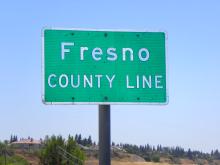The Potential of Fiber: Smart Cities, BEAD, and Municipal Broadband Financing - Episode 636 of the Community Broadband Bits Podcast

In this episode of the podcast, Chris and Sean dive into the latest developments in broadband policy and fiber technology. They discuss California’s investment in tribal broadband, the exciting capabilities of fiber optic sensing for smart cities, and the ongoing debate around BEAD funding and fiber prioritization.
The conversation highlights how fiber can revolutionize municipal infrastructure by detecting traffic, preventing water leaks, and improving urban planning.
They also preview an upcoming webinar co-hosted by Sean and Gigi Sohn of the American Association for Public Broadband, focused on financing municipal broadband projects.
Featuring insights from industry experts, the webinar aims to help local governments navigate funding options for community-owned networks.
Tune in for a thought-provoking discussion on broadband’s future, policy challenges, and the innovative potential of fiber infrastructure.
This show is 27 minutes long and can be played on this page or via Apple Podcasts or the tool of your choice using this feed.
Transcript below.
We want your feedback and suggestions for the show-please e-mail us or leave a comment below.
Listen to other episodes or view all episodes in our index. See other podcasts from the Institute for Local Self-Reliance.
Thanks to Arne Huseby for the music. The song is Warm Duck Shuffle and is licensed under a Creative Commons Attribution (3.0) license



